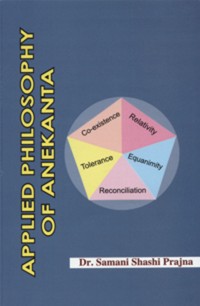The concept of secularism was first used in Europe where the church had complete control over all the properties and nobody could use any property without the consent of the church. Some intellectuals raised their voice against this practice. These people came to be known as secular. India's constitution is based on secularism which means that:
(a) each citizen would be guaranteed full freedom to practice and preach his religion,
(b) state will have no religion, and
(c) all citizens, irrespective of their religious faith, will be equal.
In modern social context, there cannot be a better interpretation of anekānta than secularism. It is the modern social philosophical definition of anekānta.True Anekāntavādin doesnotdiscriminate on the basis of caste, religion,sex, race and nationality.He is secular in outlook and scientific in approachA secular state protects all religions equally and favors none at the expense of others. The state recognizes equal rights, privileges and duties as belonging to all citizens, irrespective of their religion or caste.India is one of the good example of secularism and anekant. It only means that the state as such does not identify itself with any particular religion.It not only tolerates others but gives equal respect for all religions. It should only mean elimination of religion-based conflicts and confrontations. Anekānta can be utilized beneficially in the field of religious tolerance also to create communal harmony which is the real secularism.
 Dr. Samani Shashi Pragya
Dr. Samani Shashi Pragya

